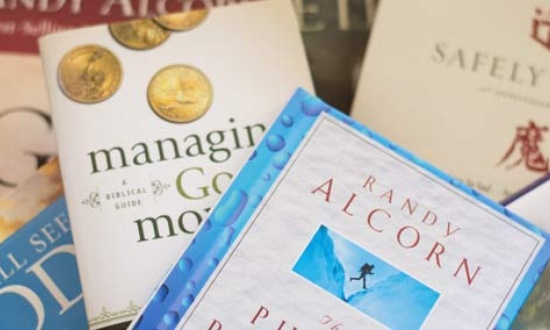I enjoyed Kevin DeYoung’s blog “How to Write More Gooder,” in which he shares some great advice for writers. (You might also be interested in C. S. Lewis’s tips on good writing.)
Here are a few of my own thoughts about writing:
Be a voracious reader. To improve my skills I continue to read and reread books on how to write. I also analyze both the fiction and the non-fiction I read. What do I like or not like? What is the author doing to create this mood, develop this character, create this tension, set up a plot twist, etc.? Good writers are readers, and writers who don’t have time to read won’t ultimately be worth reading.
Work hard at it. Anything that’s easy to read is usually hard to write. What’s easy to write is hard to read. I heard one author say, “Writing is like giving birth to barbed wire.” Writing is 5% inspiration and 95% perspiration.
Learning to write well is not a matter of memorizing a set of rules. It’s a matter of mastering a set of techniques. The artist—and writers are artists—who desires to excel at writing must dedicate his life to mastering the skills. You’ve heard it said many times: How does one learn to write? By writing, and writing, and writing...That’s because the writing itself is your practice. Every page you write is the equivalent of that half-hour at the piano keys, honing your skills.
Realize that the best writing comes in revision, not creation. I learned long ago that I should never wait for inspiration or a good beginning. I just jump right in. I’ll either cut it out or clean it up later. Years ago I heard someone say, “Never edit at the point of conception.” I think a lot of writer’s block happens when people wait for the right words. I just write. Later, I labor over the right words, and there’s no block because I’m already looking at something on the screen.
First drafts are the lump of clay; repeated revisions shape it into art. Someone asked Hemmingway why he rewrote an ending 37 times. His answer was, “to get the words right.” Here are some tips on writing and revising in this article How to Become An Author by my friend and author Jerry Jenkins.
Write to please the Audience of One, Jesus Christ. Whether we eat or drink or whatever we do (including writing), we are to do to the glory of God (1 Cor. 10:31). If your writing is about you, not God and His glory, find something else to do that you can make about Him.
Be humble. “All of you, clothe yourselves with humility toward one another, because God opposes the proud but gives grace to the humble. Humble yourselves, therefore, under God’s mighty hand, that he may lift you up in due time.” (1 Peter 5:5-6). Do we want God’s grace or His opposition?
The way to be humble is to take a good look at God and then a good look at yourself, and notice the difference. When you see Him as He is and yourself as you are, the very thought of being proud or arrogant should be absolutely laughable. Writers who are proud will not depend on Christ and will operate on their own strength. Throughout the process of writing a book I find myself on my knees repeatedly because I know I cannot do it without Him, and anything I do without Him will not last. Jesus said, “Apart from Me you can do nothing” (John 15:5).
Photo by Trent Erwin on Unsplash




